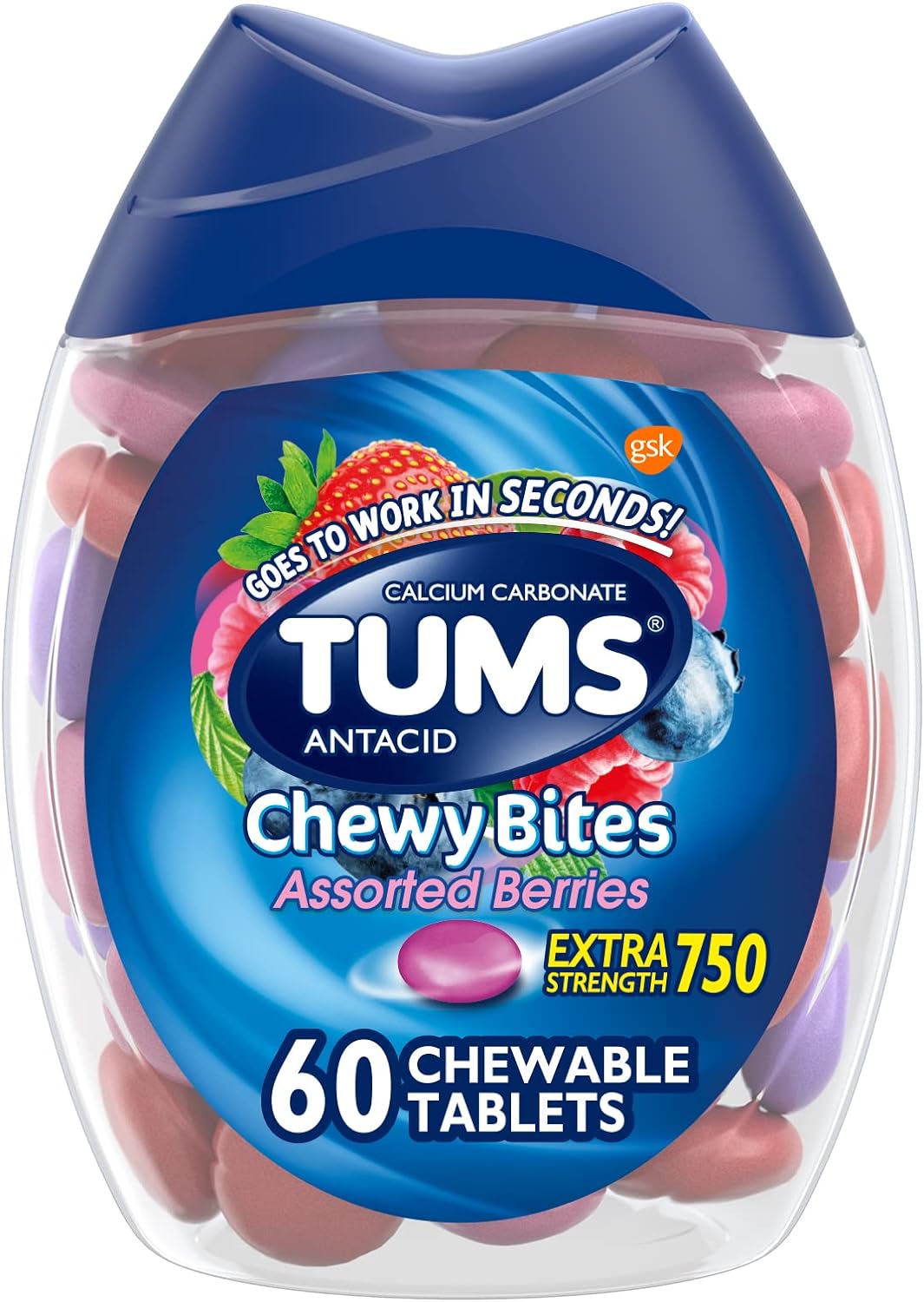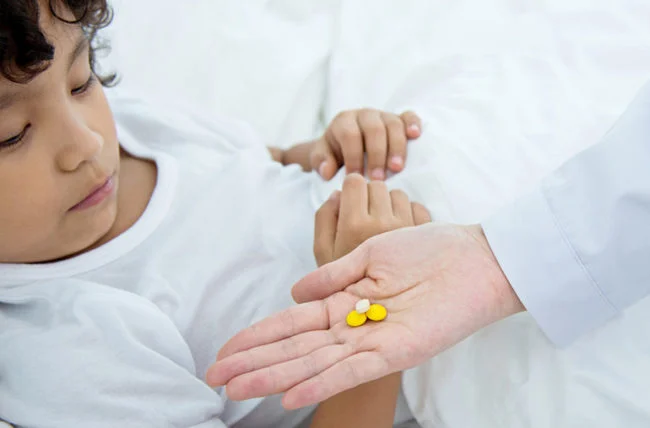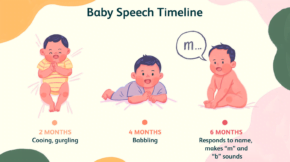Can Kids Safely Use Tums for Indigestion Relief? Explained!
Share

Just like any adult, kids also go through stomach issues like an upset stomach, acidity, and heartburn. More often than not, most adults are tempted to give their children an antacid like the Tums. However, can kids have Tums? Is it safe? In this article, we talk you through everything about the antacid and its ingredients.
We talk about preventive measures and how to administer Tums to your kids. Keep reading to find out everything about it.
What are Antacids? Is Tums an Antacid?
Antacids are medications that help neutralize gastric acids in your stomach. Anytime anyone, including the children, has gastric issues, the pH in the stomach rises, and antacids help level that. They can be purchased over the counter and comes in several forms like syrups or tablets. Anyone can consume antacids to get some relief.
As far as children are concerned, many antacids are safe for children of a certain age, but there isn’t a universal rule on which product may suit or not suit your child.

Tums are antacids that are very good for heartburn and can sometimes help with upset stomachs too. They work very well in relieving acid reflux, indigestion, and bloating. While Tums is not an all-in-one stomach medicine but it can help with chronic conditions.
The ingredients for the Tums mostly include sodium and calcium. Most varieties of Tums have a small amount of sodium and are mostly elemental calcium. All Tums use calcium carbonate as their active ingredient and are very effective.
Who Can Take It?

Anyone who is facing occasional heartburn after drinking a strong coffee or eating a lot of chili can take Tums to get some relief. Tums generally help with the following issues.
Tums are great antacids to reduce the effects of acid indigestion, also known as heartburn and acid reflux. For the most part, Tums has calcium carbonate that helps neutralize stomach acid.
A very common reason to take antacids like Tums is issues of gas. Gas can lead to discomfort like upset stomach, cramping, and pain. Gas happens when the air bubbles get trapped in the stomach, causing a bloating effect that, in turn, puts pressure on the stomach. Tums can relieve gas and help you with discomfort.
Can Kids Have Tums?

While it can be very alluring to give your kid Tums when they are complaining about stomach aches, it is important to ensure that the antacid you are administering to your child is safe for them. Tums, instead, are only safe for children above 12 years of age. It is not advised to give Tums to any child who is younger than that. While antacids like Tums are not really very dangerous, it is still risky to give them to your child.
This is mostly because children’s bodies are very sensitive, and they react very differently to active ingredients in the antacid than that of an adult. Moreover, kids need very little doses to get relief from these symptoms.
Most antacids like Tums can be in high doses, making it unsafe for your kid. In fact, the label on Tums indicates an age restriction, and it is important to keep that in mind.
It is always a good option to speak with your pediatrician to know what medicine you can give to your child. There is a possibility of underlying issues when your kids complain of stomach aches. Your doctor will help you with that.
However, if you are sure that your kid has heartburn or a gassy issue, you can always resort to home remedies or some other antacid especially made for children.
What Will Happen if My Child Accidentally Takes Tums?

While it is not advised to give your child Tums, if they take the medicine, in any case, there shouldn’t be too many side effects. Your child might have issues like constipation, more gas, and burping, but it doesn’t sound very scary. With that said, WebMD suggests that there could be serious allergic reactions in some cases, but that is just very rare. It is unlikely that anything too serious will happen to your child.
With that said, it is important to keep in mind that giving your child Tums is not advised. It will harm your little ones’ immune systems in the long run and isn’t a good idea.
Tums Alternatives

While Tums are not the best idea for kids, the good news is there are some other options available in the market. Especially if your kids are facing issues like nausea, vomiting, or diarrhea, you can find some over-the-counter medicines. Kids’ Pepto Bismol works great for kids with digestive issues. Hyland’s 4 Kids Tummy Ache tablets and Immodium for kids are also great medicines. They are specially made for tiny tots and hence do not harm them in any way. However, with that said, not all medicines sit well with everyone. So, it is important that you be careful about what you give to your child.
What to Keep in Mind Before Giving Your Child Any Antacid?

There are a number of things that you should keep in mind before you administer any antacid to your child. First of all, you must ensure that your child really is having these issues. It is very common for children to pretend to be sick because of various reasons. These include the following.
- Seeking attention: More often than not, if a child feels like they are not getting enough attention, they will pretend to be sick.
- To Not Do Something: If your child does not want to do something, pretending to be sick will help them out of the situation.
- Imitation: Sometimes, children imitate what the elders around them are doing. So, for instance, if someone in the family is complaining of stomach ache, it is possible that your kid will start complaining too.
- They are cranky: Kids are little creatures who find it very difficult to differentiate how they are feeling. Sometimes when they are feeling cranky or sad and can’t express it, they might think of it as being sick.
- Hungry: It often happens that when a child is hungry, they might feel like their tummy is upset.
It is important to make sure that your child is not pretending to be sick before giving them anything that might have a side effect. If you believe that your child is just throwing a tantrum and is not really sick, you can very easily take care of that situation. Make sure that you give your little one enough attention in times like these.
You can give them a placebo or a multivitamin for them to believe that they have taken medicine, and you can just distract them for a little while with something else.
With that said, if your child continues to complain about being uncomfortable, it is possible that they really are facing issues. If that is the case, you must keep an eye on their symptoms and make sure you treat them well.
Some symptoms of real illness and digestive issues could be changes in appetite, trouble pooping, urinating more or less than usual, and vomiting. If any of the signs persist, you should call your doctor and make sure you take care of the child.
Home Remedies for Heartburn and Gastric Issues in Kids

While antacids and medicines are the first options, most people think of them in situations like these. Home remedies can also prove to be very helpful. In case of heartburn and indigestion, you can look at these home remedies.
- Aloe vera Juice: This is an easy way to treat the issue of heartburn and acid reflux. Dilute aloe vera juice in water and get your kid to drink it. You can also scoop out fresh gel from the aloe leaf and boil it in water. Give this mixture to your child to give them some relief.
- Fennel Seeds: Fennel seeds have an enzyme called anethole. It is very helpful when dealing with gastric issues in kids. If your child is old enough to chew, give them some fennel seeds.
- Yogurt: You can also get your child to eat some yogurt. Yogurt is alkaline and helps soothes the tummy. It can also help in maintaining the pH balance of the body, and unlike many other antacids, it doesn’t stop the body from absorbing proteins.
- Coconut Oil: Coconut oil is very effective in keeping gastric issues under control. It has anti-inflammatory properties, which calm the stomach and help with treating acid reflux.
- Basil Leaves: Basil leaves can also prove to be very good for treating symptoms of acid reflux in children. In a glass of water, put some basil leaves. Boil this till the water is reduced to one-third of the original measurement. Refrigerate this and administer it to your kid every morning.
- Ginger: Mixing ginger juice with warm water also works miracles. You can prevent symptoms of acid in children with this. However, remember, you will have to get your child to drink it every morning.
- Baking Soda: Baking soda is alkaline in nature and can help maintain a healthy pH balance. Take a glass of water, and add a tablespoon of baking soda to it. Mix it a little and give it to your child. This will help with their heartburn issues.
- Ainseed: Ainseed is great for relieving acid reflux in the child. Give your child a tablespoon of aniseed to chew after a meal. You can also soak the seeds in water and administer this water to your child.
These home remedies are great for treating issues of heartburn in your children. You can practice most of them on a regular basis to keep the problem at bay. Remember, prevention is always better than cure.
Additional Details That You Should Keep in Mind?
It is expected that you would want to provide your child with the relief they are looking for. However, there are some other things you will have to take care of. These things are:
The Diet: It is important to manage your child’s diet in order to promote proper digestion and ensure that they stay healthy. For this, the general dietary guidelines can prove beneficial.
- Make sure you give your child fiber-rich foods that have a lot of roughage. This includes fruits like apples, pears, and berries, vegetables like broccoli, carrots, and spinach, and whole grains like brown rice, oats, whole wheat bread, and legumes. This will save your child from constipation and many other digestive issues.
- Ensure your child is properly hydrated. They must drink plenty of water throughout the day to help with digestion.
- Limit Processed Foods: Avoid giving your child processed foods that can worsen digestive symptoms.
- Small Frequent Meals: Encourage your child to eat smaller meals throughout the day. This will reduce the workload on the digestive system making digestion easier.
- Probiotic Foods: Probiotics are good for gut health. It is great to add probiotic-rich foods like yogurt and kimchi.
Stay Mindful: Keep in mind what suits the best for your child and improvise accordingly. There is no fits-all method when it comes to general health. So, make sure you take your child’s needs into account before making a decision.
Allergies: Not everything sits well with every child. So, take into account your child’s allergies before you administer anything to them.
Last Word!
With this, we conclude that the answer to your question: Can kids have Tums? It is a No. While Tums is a great antacid for most stomach issues, it is not good for your child. Any child below the age of 12 should not take this. However, there are a few other options available for them, and you can choose among them. You can also resort to some home remedies to give your child some relief. However, if any symptom persists, it is important to see your pediatrician.
A Happy child leads to a happy home. Remember that.















